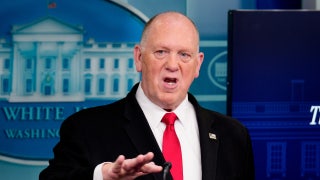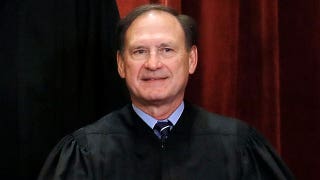If you thought Washington—which already took over banking and autos, and is fast-tracking attempts to take over health care and energy—would leave the Internet alone, you were dead wrong. The Internet (perhaps our greatest free market success story in recent years) is squarely in the cross-hairs of the administration and it’s not waiting for Congress to act. The charge is being led by an eager, ideologically committed White House staffer named Susan Crawford. Officially, she is the Special Assistant for Science, Technology, and Innovation Policy. Wired Magazine calls her, “the most powerful geek close to the president.” In recent weeks, bloggers and online activists have begun calling Crawford the "Internet Czar." The shoe fits.
As Bill Collier of Freedomist has reported, Crawford has known ties to ACORN, which is one of the participating organizations of her "OneWebDay" project. Crawford self-consciously modeled OneWebDay on Earth Day and the radical environmental agenda that it propelled forward. As Crawford explained her mission to The Wall Street Journal in April: “We should do a better job as a nation of making sure fast, affordable broadband is as ubiquitous as electricity, water, snail mail, or any other public utility.”
In other words, the agenda of her organization is to transform access to the Internet into a government entitlement project, with all the necessary government intrusion and control in order guarantee it to everyone—in the world. Not surprisingly, listed alongside on the OneWebDay participating organizations list is a group called Free Press, which is the biggest advocacy organization pushing the Obama administration to adopt sweeping regulations of the Internet.
Free Press was founded by Robert McChesney, an avowed Marxist who is Washington’s leading advocate of so-called network neutrality regulations who recently argued—on a Web site called SocialistProject.ca—that this type of Internet regulation is a prerequisite for a socialist revolution: “Instead of waiting for the revolution to happen, we learned that unless you make significant changes in the media, it will be vastly more difficult to have a revolution.”
Crawford and McChesney apparently have the full support of the Obama administration and an FCC that is determined to move toward transforming the Internet into a Washington-controlled utility as quickly as possible. The chairman of the Federal Communications Commission, Julius Genachowski, recently announced his pursuit of precisely the regulations they want.
The FCC isn’t pursuing this just because of orders coming from Obama’s Internet Czar. This goes all the way to the top—Obama himself said on the campaign trail last year: “I will take a back seat to no one in my commitment to net Neutrality.”
It’s of no apparent concern to Obama, Crawford, and Genachowski that net neutrality regulations—which would require network operators to treat every bit of traffic the same way, regardless of whether that makes sense from an engineering or business standpoint—will result in a collapse of private investment in Internet infrastructure, because they regard private investment as unnecessary within their vision of government ownership and control.
Proponents of net neutrality rely on the scare tactic that big bad cable and phone companies will block access to Web sites and cause other mischief unless the benevolent federal government rides to the rescue, and soon. But they’ve been ringing this alarm for the better part of a decade and none of the horrors they warn us about have happened. There is a simple reason—these companies are in an intense competition, especially in the wireless space, which is as cutthroat as any industry in America. If one company tried to block access to Web sites or engage in other mischief, they would lose their customers in droves to the competition.
Net neutrality regulations would destroy private investment and we would end up with a government-owned and controlled network. We’ll have nowhere to go if the government turns out to be not quite as benevolent as some have hoped. That’s a frightening scenario and we should do everything we can to stop the net neutrality regulation that would start us down that path.
Mr. Kerpen is director of policy for Americans for Prosperity. He can be contacted through PhilKerpen.com. Follow him on Twitter and Facebook. His free two-minute Podcast is available daily.








































